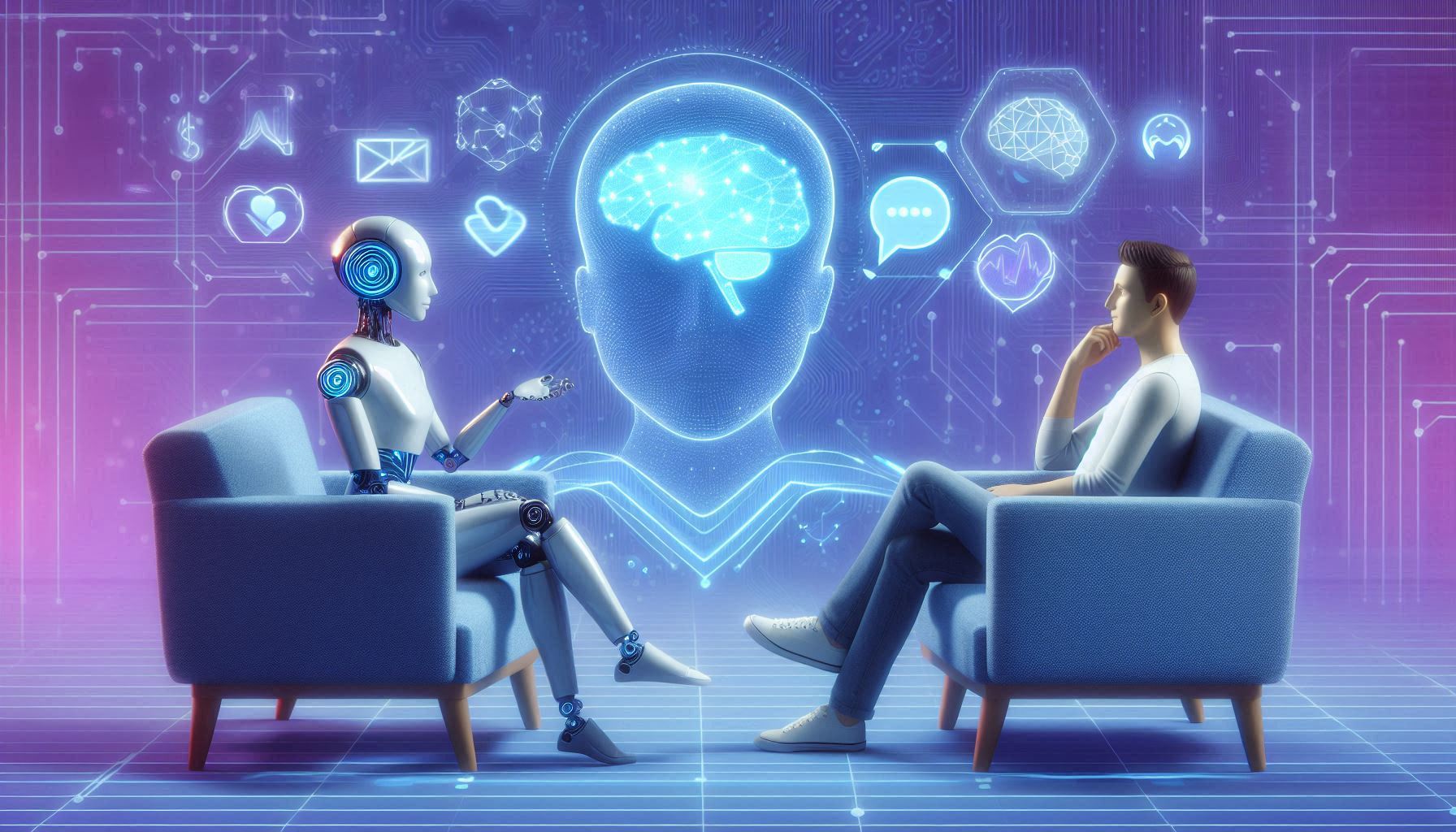Mental health is a really important part of our overall well-being. But, indeed, most of us can not access proper care due to high costs, and the lack of mental health professionals. But now we have entered the era of artificial intelligence and it is playing great role in mental health care through AI-based mental health apps, therapy bots, and AI-driven diagnostics.
But people do not trust technology and AI. So, they ask are these tools really effective?
Well, in this article we are going to explore the benefits, challenges, and the future of AI in digital mental therapy.
Use of AI in Mental Health
In 2025, the article Artificial intelligence takes place in every profession and we have so many options to select from. So, not all AI platforms are equally great but we need to try and test to find the perfect one. Here is how AI is used in mental health-
- AI-Power Therapy Chatbots: Chatbots like Wysa, Replika, and Woebot provide 24/7 emotional support to the users. These AI chatbots help users manage stress, anxiety, and depression.
- AI-Based Apps for Mental Health: There are many AI-based apps that provide personalized mediation, breathing exercise, and mood tracking.
- Virtual Reality Therapy: This is new to the market but really useful. AI-driven virtual environments help with PTSD, phobias, and anxiety-related treatment.
- AI-Based Diagnosis: Algorithms like machine learning have become really advanced that they analyze speech patterns and facial expressions to detect the early signs of mental health conditions like depression and phobia.
Benefits of AI in Mental Health
1. Affordable Mental Health Care
We all know how expensive traditional mental therapy is, many of us can not afford it if we need it. AI-powered mental health therapy is either free or costs a few dollars which gives access to a wider audience.
2. 24/7 Accessibility
What do you think, what is the biggest advantage of AI in mental health? Well, It never get tired and it doesn’t need any break or leave. AI provides support 24/7. Unlike human therapists, AI chatbots are always available to provide support, it helps people to manage their stress and emotions whenever they need it.
3. Reduce Stigma
We humans have social stigma, many people hesitate to seek mental health therapy due to the social stigma. But when it comes to AI mental health therapy, it provides a judgment-free and private space that encourages more people to seek help for their mental issues.
4. Early Detection and Diagnosis
As we discussed machine learning algorithms are capable of detecting early signs of mental health conditions like depression and anxiety by analyzing the user’s speech, facial expression, and even text.
This early detection is very useful as knowing in the early stage is very beneficial to prevent severe issues.
5. Personalized Therapy
AI-powered mental health applications can analyze the moods and behavior of users to provide personalized therapy sessions. This is really amazing for the people who have the risk of getting mental health issues.
Imagine how costly it could be if someone needs to hire a mental health therapist for absorbing and analysing the moods and behavior of any individual who has the risk of getting mental health issues.
6. Assistance for Therapists
AI has become very useful for human therapists as it can assist them in analyzing the data of patients and tracking their progress. Well, it will increase the productivity and allow the therapists to focus on the complex and important cases.
Real-World Examples of AI in Mental Health
- Wysa: Wysa provides guided therapy exercises, emotional support, and mindfulness techniques, and it is an AI-powered chatbot for mental health support. Millions of people from all over the world use it.
- Woebot: It is another AI chatbot for mental health support used for Cognitive Behavioral Therapy (CBT) techniques. Interactive conversions and mood tracking are some of the best features of Woebot.
- Replika: Replika is also an AI-powered chatbot for mental health support. It is designed to provide emotional support. It learns from user interactions to provide support.
The Future of AI in Digital Therapy
Before we talk about the future of AI in digital therapy we must know that AI is learning from humans, yes it is getting trained by humans. So, as time passes, AI is going to be more smart and powerful.
In the future, AI will become very advanced, virtual AI therapists will provide more realistic solutions. AI will learn from real human therapists to provide better mental health advice.
AI and the Workplace Mental Health Revolution-
People have to face lots and pressure and stress in their jobs so many companies have started using AI to monitor the mental well-being of their employees and provide digital mental health support.
In the future, AI-based digital mental therapists may become a standard part of mental health programs in corporations.
Improved Emotional Intelligence in AI-
AI engineers are working on improving the emotional intelligence in AI applications. We can guess in the future AI-based applications can read the tone, body language, and emotions of humans and will provide better support.
AI-Powered Therapy Integration with Real Therapists-
The future AI mental health system will help human therapists analyze patient recovery progress, and show data-driven insights, and suggestions about therapy adjustment. It is not going to replace human therapists but it is going to be a great support tool for them.
Conclusion
AI is transforming the world for the better. It provides great support to medicinal health professionals for now, especially mental health professionals. For users, It is an awesome tool for managing anxiety and stress. In this article, we have explored the benefits and future of digital therapy.
If you have any queries or suggestions feel free to contact us using our comment box.
